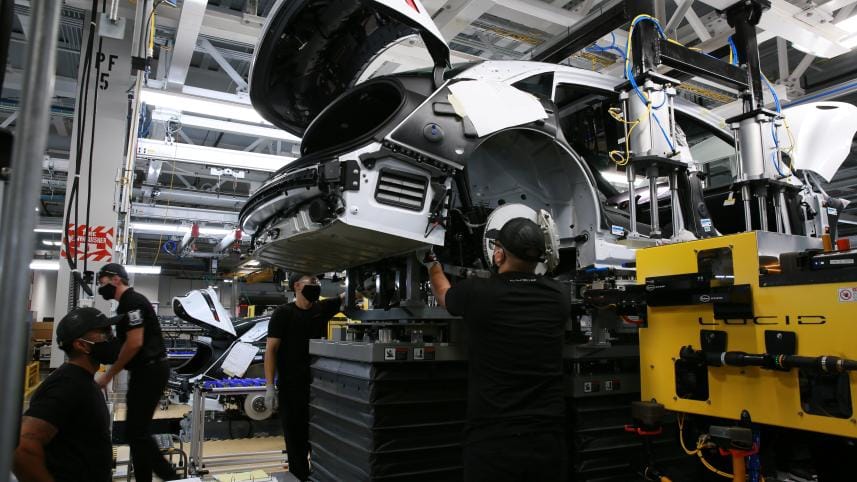Biden's precise industrial policy may soon mutate

Joe Biden's industrial policy legacy depends on who replaces him. Two years into the US government's attempt to lure manufacturing of semiconductors and renewable energy back home – and less than two weeks before the end of Biden's term - the president's top national security aide, Jake Sullivan, offered a defense of his boss's major economic choices.
In a speech at the Brookings Institution think-tank in Washington on Wednesday, Sullivan sketched out how the US and its allies could use targeted investments, tariffs and sanctions to protect and nurture jobs and know-how from China's threat. But that fragile success has a major asterisk next to it: Donald Trump may use the same weapons to wage a more straightforward trade war.
Sullivan's chief economic goal in office has been to reset the US post-Cold War approach to trade, which has been under political attack from the Republican presidential candidate and others for a decade. Sullivan's Democratic version was heavier on public investments in strategic sectors such as chipmaking, and greener in its focus on renewable energy like solar panels.
It also attempted to be more friendly to other countries by envisaging the shifting of supply chains to American allies and neighbors - a stark contrast to Trump's "America First" approach. The US is also not alone. Sullivan pointed to similarly ambitious domestic industrial policy plans released by the European Union, Canada, Japan, and India as a sign that US allies had also recognized the dangers of being too dependent on China.
Sullivan conceded that the US approach has forced its partners to adjust on the fly. While China uses subsidies and aggressive exports to dominate overseas markets, US sanctions and tariffs have forced other countries to shift production and shun Chinese buyers. In the long run, supply chains will be less dependent on China. In the meantime, the switch means higher prices and shortages.
The Biden administration has tried to target its measures with surgical precision. In a previous speech at Brookings last year, Sullivan described the US approach to technology measures as protecting a "small yard with a high fence."
But in a global economy where every gadget contains several dozen computer chips and inflation remains a bitter recent memory, the risk is that policymakers get carried away with jingoism. That's far more likely to happen if Trump returns to the White House and implements his threat to impose an across-the-board 20 percent tariff on imports. Though Sullivan can claim his targeted approach involved as few tradeoffs as possible, the Biden administration kept nearly all of the China tariffs introduced by Trump. In different hands, US tariffs and sanctions may once again become blunt weapons.



 For all latest news, follow The Daily Star's Google News channel.
For all latest news, follow The Daily Star's Google News channel.
Comments